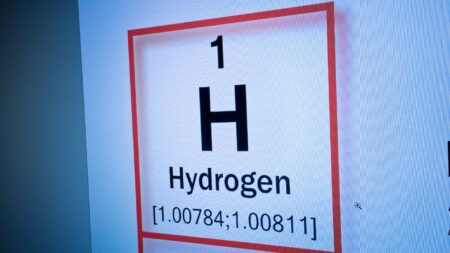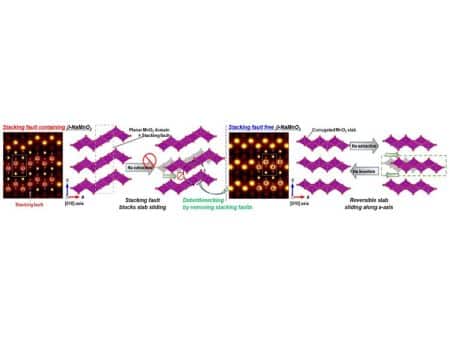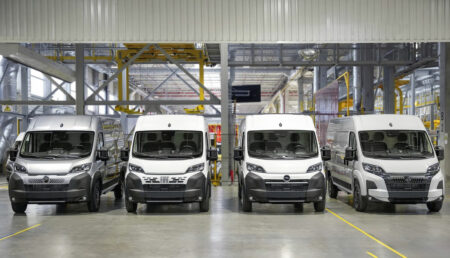Ford Pro, the commercial vehicle and services division of Ford, is testing hydrogen fuel cell technology on a small fleet of prototype E-Transit vans in the UK.
The project is part-funded by the Advanced Propulsion Centre and involves a consortium of six automotive technology leaders and fleet operators, including bp, Ocado Retail, and Viritech. The aim of the project is to establish if hydrogen fuel cell technology can increase the zero-emission driving range of the E-Transit for energy-intensive use cases. Ford believes that fuel cells could be ideal for its largest, heaviest commercial vehicles to ensure they remain emission-free while meeting the high energy demands of its customers.
The prototype E-Transits will be fitted with a high-power fuel cell stack and optimized hydrogen storage capacity to evaluate the total cost of owning and operating a large van with enhanced zero-emission range and uptime. The pilot will also help determine the necessary hydrogen refuelling infrastructure required to support the technology. The prototype fleet will run for six-month periods over the three-year project to 2025, and the data will provide insights into the project’s environmental and financial feasibility.
Ford has been researching fuel cell technology since the 1990s, developing many prototypes and refining test fleet vehicles in partnership with customers. In 2021, the company demonstrated an E-Transit fuel cell vehicle at the CENEX Low Carbon Vehicle Show. Ford is still involved in several publicly-funded projects in Europe exploring the use of hydrogen technologies for internal combustion engine-powered vehicles and fuel cells.
The consortium aims to validate the business case for the E-Transit fuel cell vehicle by linking Ford with fuel cell powertrain experts and fleet operators to help evaluate the supporting infrastructure required. The project will also evaluate the end-of-life component recycling and cost-effectiveness of hydrogen fuel cells compared to other low-emission technologies.
The potential impact of this project is significant. Hydrogen fuel cell technology can provide a more extended zero-emission driving range than battery-electric vehicles, making it an attractive option for commercial vehicles with high energy requirements. The development of this technology could significantly reduce carbon emissions from commercial vehicles and support the UK’s plan to achieve net-zero carbon emissions by 2050.








